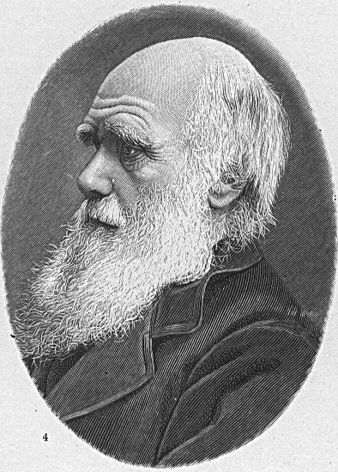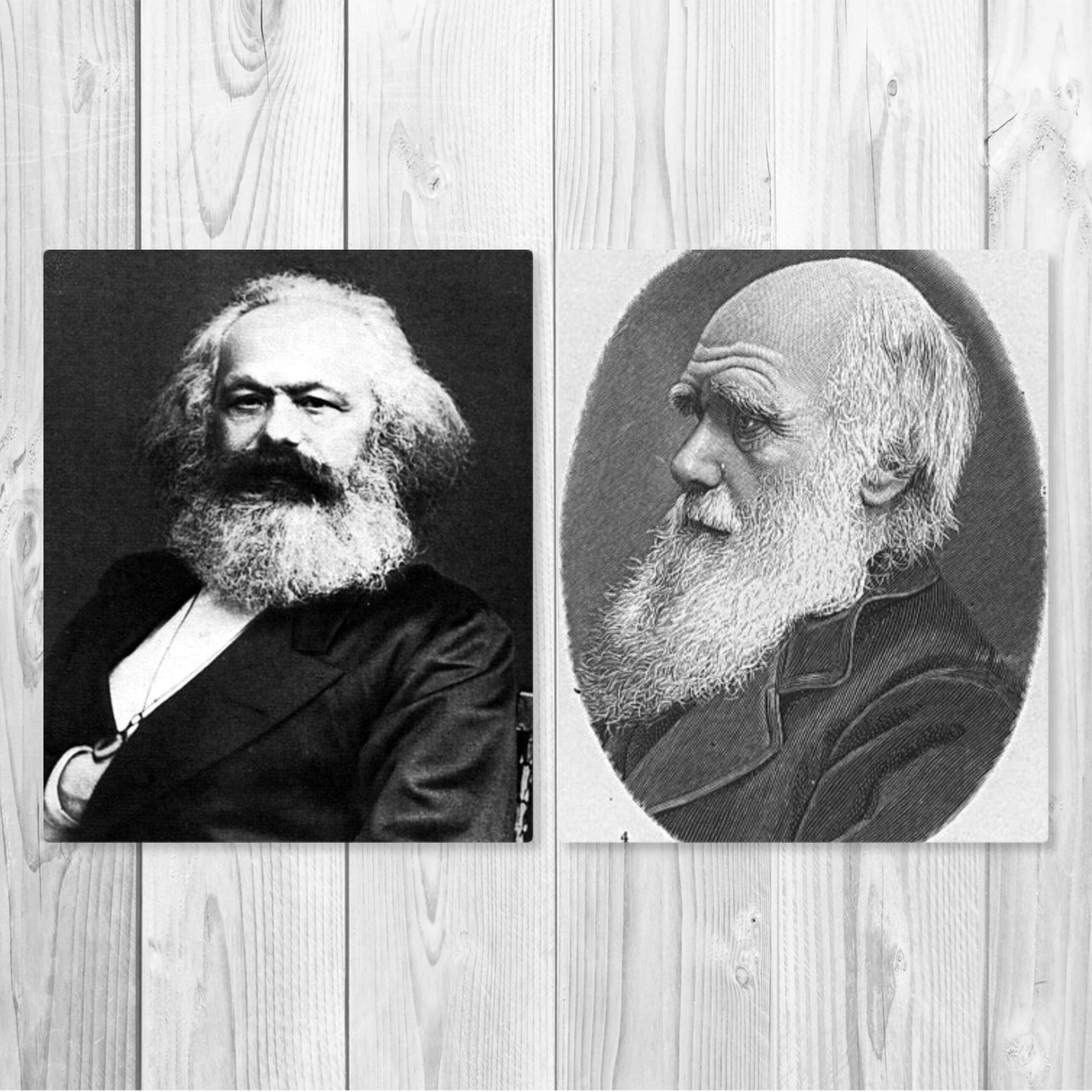Marx, impressed by "The Origin of Species," dedicates "Capitalism" to Darwin. How he responded, "Learning from the Lives and Thought Backgrounds of Marx and Engels" (53).
In the above article, we have provided a brief chronological overview of the lives of Marx and Engels, but in this series, "Learning from the Life and Thought Background of Marx and Engels," we will look at the lives and thought of Marx and Engels in more detail.
I will now refer to the book by Tristram Hunt.Engels, The Man Marx Called General.This is a biography of Engels called.
What makes this book excellent is that it explains in an easy-to-understand manner which ideas influenced Engels and how his writings were produced from them.
It is very easy to understand the flow of history because you can learn along with the historical background of the time and the ideas that were popular at the time. It is easy to understand how the ideas of Engels and Marx were developed. The book also gives me a road map of what to read next to learn more about Marx and Engels. I appreciated this.
And this book made me realize how much Engels had influenced Marx's writings. It is quite amazing.
Although this book is a biography of Engels, it also goes into great detail about Marx. It was such a great biography that I thought I could learn more about Marx by reading this book than by reading a biography or commentary on Marx.
We may use other Marx biographies to supplement some of Marx's life and interesting episodes, but basically we will focus on this book and take a closer look at the lives of Marx and Engels.
For other reference books, see the following articles"List of 12 recommended Marx biographies--to learn more about the life and thought of Marx Engels."Please refer to this page for a summary.
So let's get started.
Engels introduces Darwin's ideas to Marx
In this article, instead of Tristram Hunt's "Engels: The Man Marx Called General," which I always refer to, Jonathan Sperber'sMarx: The Life of a Nineteenth-Century Man.We will look at
It was Engels who introduced Marx to Darwin's ideas. Engels acquired a copy of The Origin of Species in November 1859, within two weeks of its publication.
He immediately read through it with enthusiasm and told Marx: "I am very impressed with the book. He immediately read it and was enthusiastic, telling Marx: "It is quite a feat. It is the most spectacular attempt ever made to establish the historical development of ...... nature, and no such attempt has ever been so successful.
It took Marx a year to follow Engels' recommendation and actually read the book himself. In the meantime, he had to nurse his wife, who had developed smallpox. This is a book," he told Engels, "which contains the natural history basis for our views, albeit roughly stated in English [in Sparber's words, "in the roughly English way"].
In January 1861, Marx wrote to Ferdinand Lassalle, "Darwin's book is excellent. It is also my favorite ...... of the historical class struggle and as a natural scientific foundation.
Once ignited, his interest in Darwin's ideas continued for several years. He repeatedly discussed evolution with friends and comrades in London, went to lectures, studied the works of Thomas Henri Huxley, Darwin's leading introducer, and voraciously read books by authors who claimed to have developed improved versions of natural selection's ideas.
Hakusuisha, Jonathan Sperber, translated by Jun Obara, Marx: The Life of a Nineteenth Century Man, p. 132-133.
Some line breaks have been made.

Marx was introduced to "The Origin of Species" at the recommendation of Engels. Engels was far more enthusiastic about the book than Marx, but it seems that Marx was also greatly moved by the theory of evolution.
But this book by Sperber tells a surprising story later in the book.
Darwinist thinking was centered on positivism and was mostly in the vein of rejecting Hegel's dialectic. Therefore, it was written that Marx later came to rebel against Darwinism, seeing it as "a criticism of his own materialist dialectic.
The common theory is that Marx was so impressed by Darwin that he contributed a copy of "Capitalism," but Sperber disputes this.
Marx did not dedicate "Capitalism" to Darwin!
If this is Marx's view on Darwinism, why did he offer to dedicate his "Capitalism" to Darwin? The answer is simple and clear. That is, the story of Marx's dedication of "Capital" to Darwin is the kind of myth that seems to have been virtually eradicated despite repeated objections.
It was Edward Aveling, the lover of Marx's youngest daughter Elina, who asked Darwin for permission to respectfully present his own work on Darwinian theory to the public. Darwin's reluctant reply was mixed up with the Marx papers that Elina had organized after her father's death.
Hakusuisha, Jonathan Sperber, translated by Jun Obara, Marx: The Life of a Nineteenth Century Man, p. 135.
Some line breaks have been made.
Contrary to popular belief, Sparber states that Marx did not respectfully present "Capitalism" to Darwin.
This surprised me.
And it is the latter part that he cites as the basis for this, Sparber says that it was his daughter's lover, Edward Aveling, who wrote to Marx, to which Darwin simply responded.
In other words, according to Sperber, there was never any exchange between Darvin and Marx in the first place.
But is this really the case?
In contrast, "The Life of Charles Darwin" by Toshio Matsunaga, published by Asahi Shimbun Publications, Inc. in 2009, had the following to say. It is a bit long, but let us take a closer look.
Edward Aibling, Marx's daughter's lover, and Darwin.
It was September 28, 1881. Edward Bibbins Aveling (1851-1898), an English freethinker who rejected established authority, visited Down House accompanied by Ludwig Büchner (1824-1899), a German materialist. Although Darwin, who had become a celebrity, was often visited by scholars from England and abroad, Aveling and Büchner, radical thinkers, were unwanted guests. Nevertheless, he entertained them with a lunch party, and went out of his way to invite the Reverend Innes from Scotland to sit with him.Aveling studied biology at the University of London and, like Huxley, was a vigorous writer of commentaries for the popularization of science and an early supporter of Darwin's theory. In 1879, he declared his atheism and joined the Freethought Movement, and in 1880 he published a series of commentaries on Darwin's works in the movement's journal.
The first book was an English translation of Buechner's "The Spirit of Animals," and the second book was an English translation of Buechner's "The Spirit of Animals. The first book was an English translation of Büchner's "The Animal Spirit.
In a letter to Darwin on October 12, 1880, Aveling asked for permission to write a dedication to Darwin in "Darwin the Student". Darwin declined the dedication in a reply dated the following day, stating, "I see that direct attacks on Christianity and atheism have little effect on the masses," and writing, "I am also concerned that my family may suffer if I aid direct attacks on religion. The Student Darwin was published in 1881 without a dedication to Darwin.
Büchner was known as a radical materialist and had come to England to attend the International Freethought Conference in London in September 1881. Aveling and Büchner regarded Darwin as a symbol of freethought and came to pay their respects. For Darwin, a gentleman, this was an annoying misunderstanding. In his conversation with them, Darwin had said that his position was not atheism, but agnosticism.
Asahi Shimbun Publications, Toshio Matsunaga, The Life of Charles Darwin, p303-304
Some line breaks have been made.
The spar bar,
It was Edward Aveling, the lover of Marx's youngest daughter, Elina, who asked Darwin for permission to respectfully present his own work on Darwinian theory to the public. Darwin's reluctant reply was mixed up with the Marx papers that Elina had sorted out after her father's death."
It seems to me that he was correct in stating that this is a fact that has nothing to do with whether Marx contributed the book to Darwin or not. And immediately after this, Matsunaga makes the following statement about Marx and Darwin
Did Darwin not care for Marx? Was the dedication ever made?
Note that Darwin's letter to Aveling, in which he declined to dedicate "Darwin the Student," has until recently been misunderstood as a letter to Marx (Karl Heinrich Marx,1818-1883), in which he declined to dedicate "Capitalism."
In 1931, the journal "Under the Banner of Marxism," the official journal of the Marx-Engels Institute in Moscow, made such a determination, which was interpreted as an indication that bourgeois scientists who cared about public opinion were not free to search for truth. It has remained so ever since. In 1975, the error was finally revealed.
By the way, to what extent was Darwin interested in Marx?
Marx sent the second edition of the first volume of Capital to Darwin in June 1873. It was signed "My sincere admirer Karl Marx. The books of the time were read by the reader by cutting open the bound pages, but only the first 105 pages of the eighty-nine pages of "Capitalism," which are still extant at Down House, have been cut open, and there is no writing on them. Darwin probably read very little of the book in German.
On October 1, 1873, Darwin wrote a ceremonial thank-you letter. This was the first and last direct negotiation between Darwin and Marx. Darwin had no interest in Marx.
Asahi Shimbun Publications, Toshio Matsunaga, The Life of Charles Darwin: The World of the Gentleman Who Gave Birth to the Theory of Evolution, p. 304-305.
Some line breaks have been made.
We have reported on Soviet propaganda techniques in various articles on this blog, and it seems that this was done with Darwin as well. This was a surprise.
And, again, it is important to note that the issue of the letter and the dedication are completely different issues.
The fact seems to remain that the dedicated "Capitalism" does indeed exist, and that Darwin did not touch it.
Sparber's view is correct on the letter issue, but it seems questionable to say that he is not respectfully presenting "Capitalism".
In any case, there is a very interesting connection between Darwin and Marx, which I will discuss again later.
Next Article.
Click here to read the previous article.
Related Articles







































